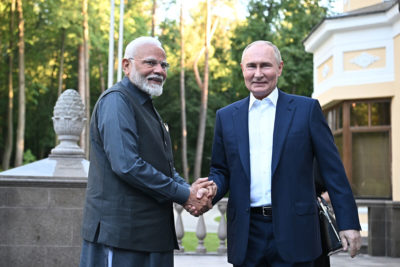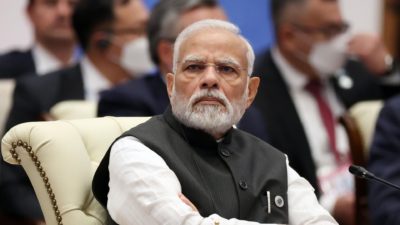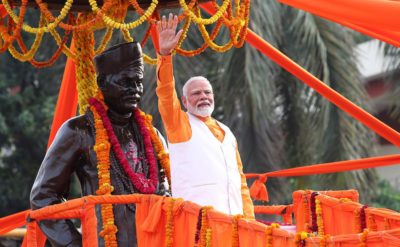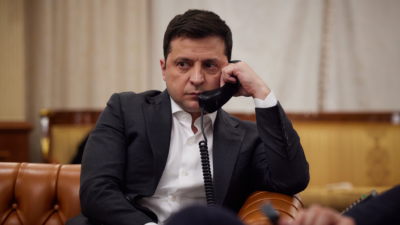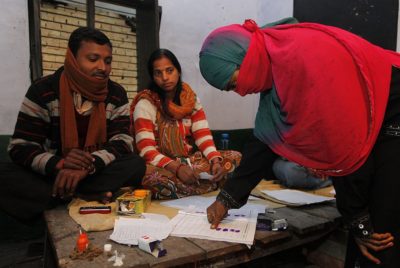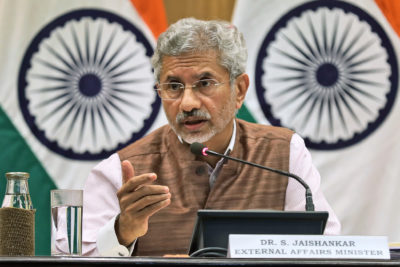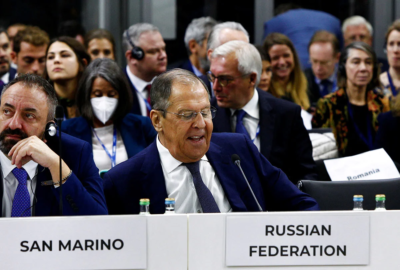On Indian Prime Minister Narendra Modi’s official visit to Russia
The head of the Indian government paid a two-day visit to Russia, during which the leaders of the two countries held purposeful talks, first at the residence of the Russian leader Novo-Ogarevo and then in the Kremlin. They discussed economic relations between the two countries, the opening of a new Indian consulate in Russia and issues related to the conflict in Ukraine. 15 documents and a number of memoranda were signed. In addition, Putin and Modi visited the Rosatom pavilion at VDNKh together.
On the first foreign-policy steps of Indian Prime Minister Narendra Modi, who has been re-elected for his third term
India’s recent parliamentary elections resulted in a third consecutive victory for the ruling National Democratic Alliance (NDA) led by N. Modi’s Bharatiya Janata Party (BJP), which won the required majority to form a coalition government…
On the results of the parliamentary elections in India
The lengthiest elections in India – and the world as a whole – lasting 44 days, to elect 543 deputies of the highest legislative body, the House of the People, have ended. The marathon voting took place in seven stages from April 19 to June 1, 2024, in which almost a billion voters took part. Thus, these were the largest elections in the world, and it should be noted that they were held at a high organisational and technical level. These elections are important because the winning party or coalition…
An uneasy dialogue between India and Ukraine
The protracted conflict situation over Ukraine could not but affect relations between New Delhi and Kiev, which had previously been characterised by progressive and dynamic development. India, which prioritises the full development of its strategic partnership with Russia, was deeply concerned by the outbreak of armed hostilities in Ukraine and from the outset has consistently called for an end to the conflict and for the situation to be resolved exclusively by peaceful political means…
Some thoughts on the upcoming parliamentary elections in India
India is a democratic republic with a federal system and a parliamentary government. The highest legislative body is the Parliament, which consists of an upper chamber, the Rajya Sabha (Council of States, 245 deputies – 233 elected by the state legislatures and 12 appointed by the President) and a lower chamber, the Lok Sabha (House of the People, 545 deputies – 543 elected by direct vote of the population and 2 appointed by the President). Although India’s head of state is the President…
On New Delhi's foreign policy in the context of Indian Foreign Minister's visits to South Korea and Japan
The Indian leadership’s foreign policy has traditionally been characterised by a multi-vector and independent foreign policy, intolerance of any external pressure or imposition of foreign recommendations and advice. New Delhi can afford such an independent foreign policy, given India’s status as a major Asian power, its claim to a certain global role and its self-confidence as the world’s third largest economy. And no major power would dare dictate its terms to India, knowing that such an action would inevitably be met with rejection…
Towards India-Russia Relations in the Context of the Munich Commemorative Security Conference
Germany recently hosted the 60th International Conference on Security and the World Situation. This largest international forum brought together more than 40 heads of state and government, some 90 ministers, mainly of defence and foreign affairs, prominent political scientists, experts and media representatives. For the third year in a row, official Russian representatives were absent from the conference, although Russian Presidents Vladimir Putin and Dmitry Medvedev and Foreign Minister Sergei Lavrov once attended the forum…
French President's visit to India
French head of state Emmanuel Macron visited India the other day. He was the chief guest of the celebrations in Delhi on the occasion of the 75th anniversary of the Republic of India, proclaimed on 26 January 1950 with the adoption of the Constitution. Traditionally, on this significant day, large-scale military parades and colourful civilian demonstrations are held in the capital and other major cities of the country. Every year the Indian leadership invites a high guest of honour to celebrate the Republic Day. Initially it was planned that US President Joseph Biden would come to Delhi, but he, citing his busy schedule, could not come and then the Indians…
Indian Foreign Minister Subrahmanyam Jaishankar visited Russia
Russia and India are successfully and dynamically developing traditionally friendly relations of special privileged strategic partnership based on mutual trust, understanding and respect. In the history of our close, trusting and unique ties, there have never been any insurmountable problematic issues, and both sides are always energised to build up multi-vector mutually beneficial cooperation. Regular bilateral contacts at various levels are key in this regard. The last Russian-Indian full-scale summit was held in New Delhi in December 2021. Another summit was planned for autumn 2023…
On Russian-Indian Relations
Relations between the two countries have always been friendly and trusting. Their distinctive feature is the absence of unresolved or problematic issues, the determination of the parties to build up multifaceted mutually beneficial cooperation in various areas on the basis of respect, trust and mutual understanding. Russia, just like the Soviet Union before, has never let this great Asian power down and always provided it with the necessary help and due assistance. And India fully reciprocates and considers the Russian direction of its foreign policy as a priority…
Some comments on the most recent OSCE Ministers’ meeting
Even though its development suffers from an ambiguous and profound crisis, and it is taking an increasingly hostile line against Russia, especially after the beginning of Russia’s special military operation, and in relation to the wider situation in Ukraine, nevertheless the OSCE remains the only European platform where we can engage in multilateral diplomacy. In view of the fact that the Organization was created as a forum for political dialogue on an equal basis and collective decision-making on the most important security issues…
In the wake of the India-US Ministerial Dialogue in New Delhi
The foreign and defense ministers of India and the United States convened for their fifth “2 plus 2” dialogue in New Delhi on November 10, 2023. We should state that the existence of this format of negotiation is undeniable evidence of a high level of trust in relations between the states. The same configuration of dialog takes place in the Russian-Indian multidimensional interaction. The “2 plus 2” format round of talks held in the Indian capital this year reaffirmed the unique strategic nature of the relationship between Washington and New Delhi as well as the parties’ intention to deepen…
